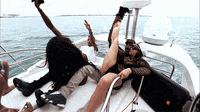stadams08
Member
My wife and I are evaluating our retirement alternatives and spending a good deal of time on a trawler is one of our options. I spent a lot of time boating when young and we worked our way up to a 28 ft Chris Craft "Cabin Cruiser" out of Jacksonville. I also spent some time sailing as crew on a 38 ft Hughs sail boat in lake Erie. There is of course a lot to learn before taking on the responsibility of captaining a 32 to 42 ft. My question is, what are the best methods to learn without having access to a boat? What courses, certifications are worth pursuing? Navigation, Maintenance, Docking, etc? Appreciate any recommendations you might have.


